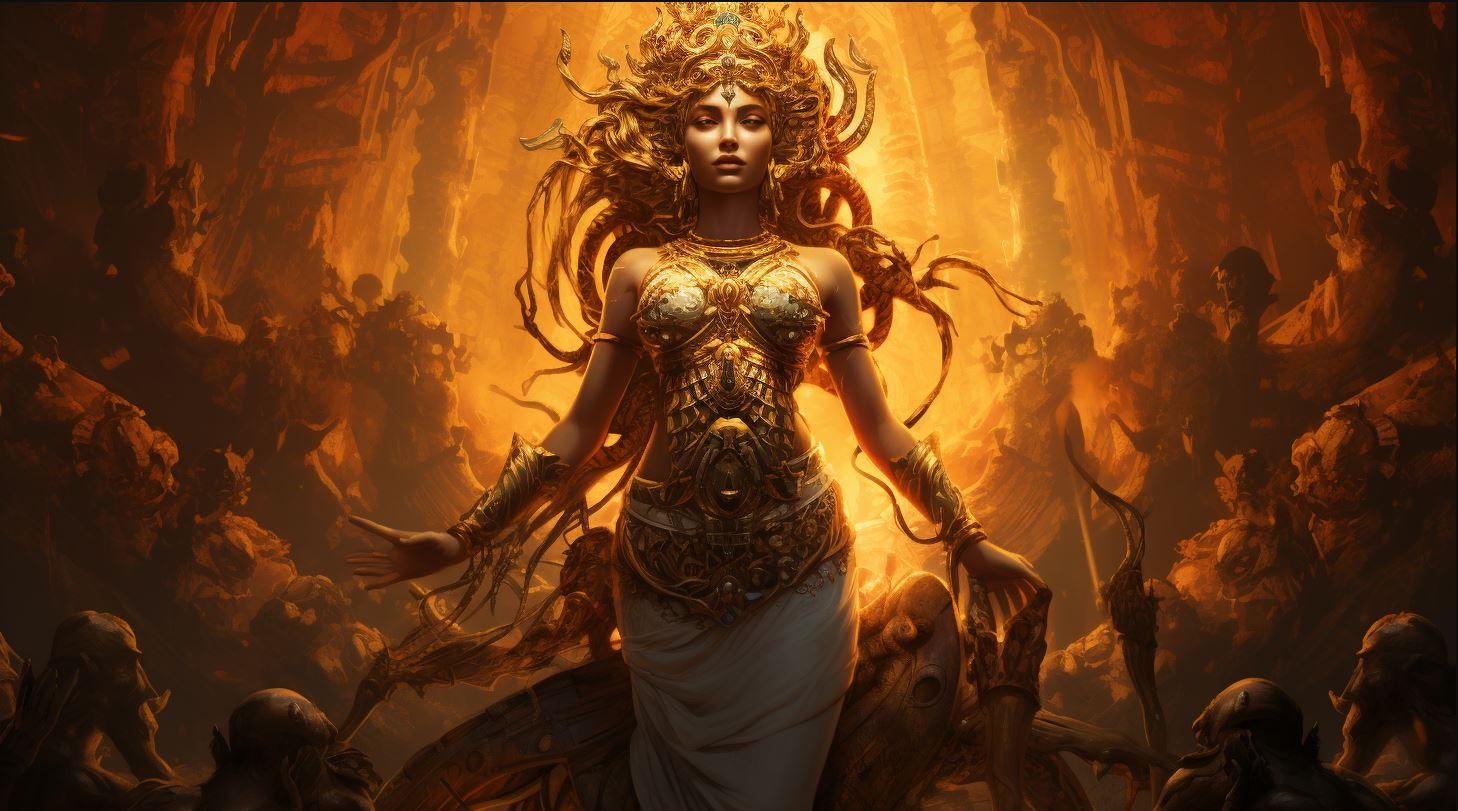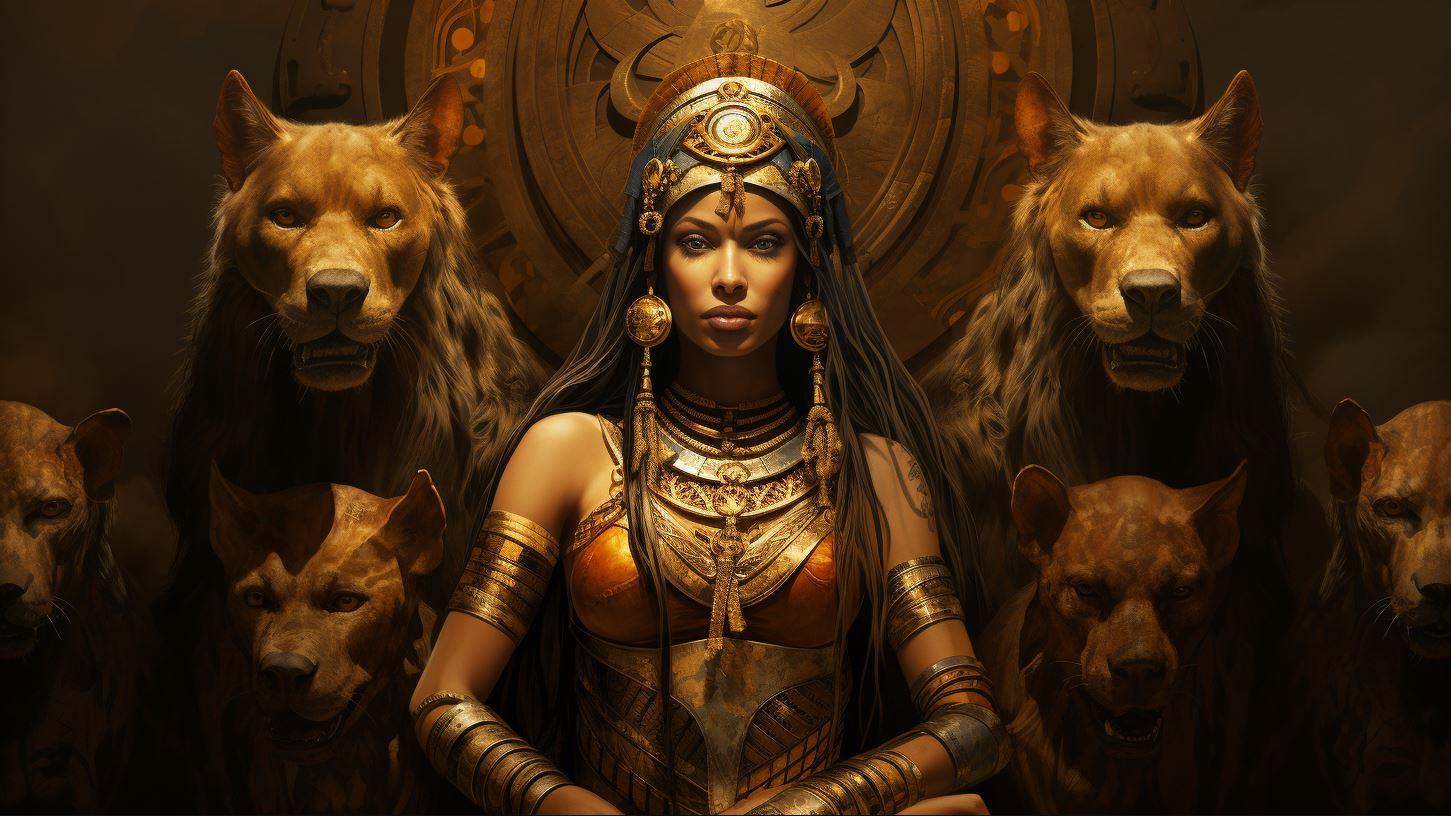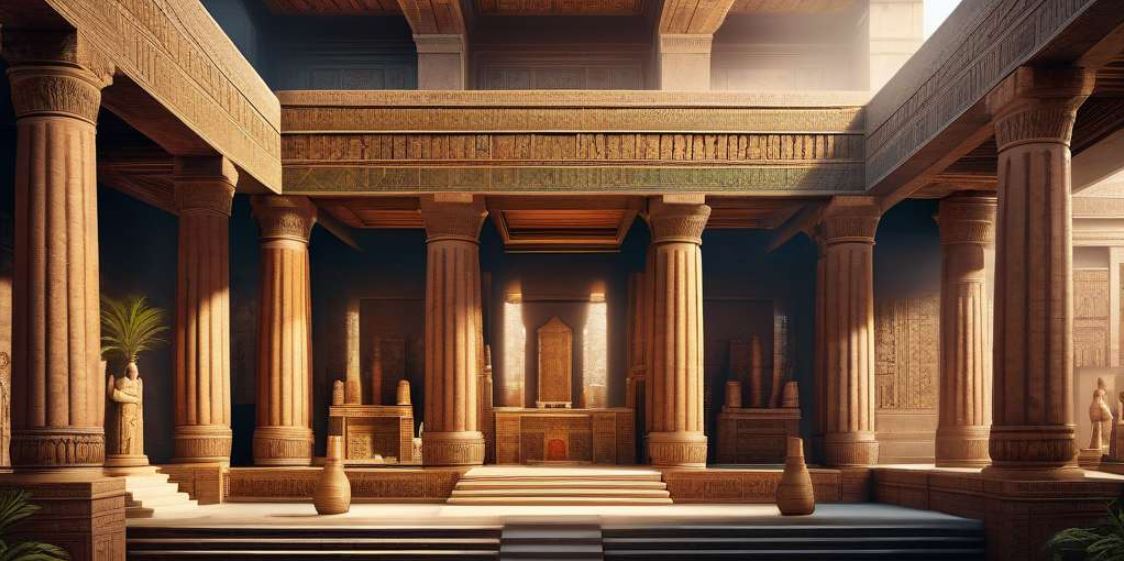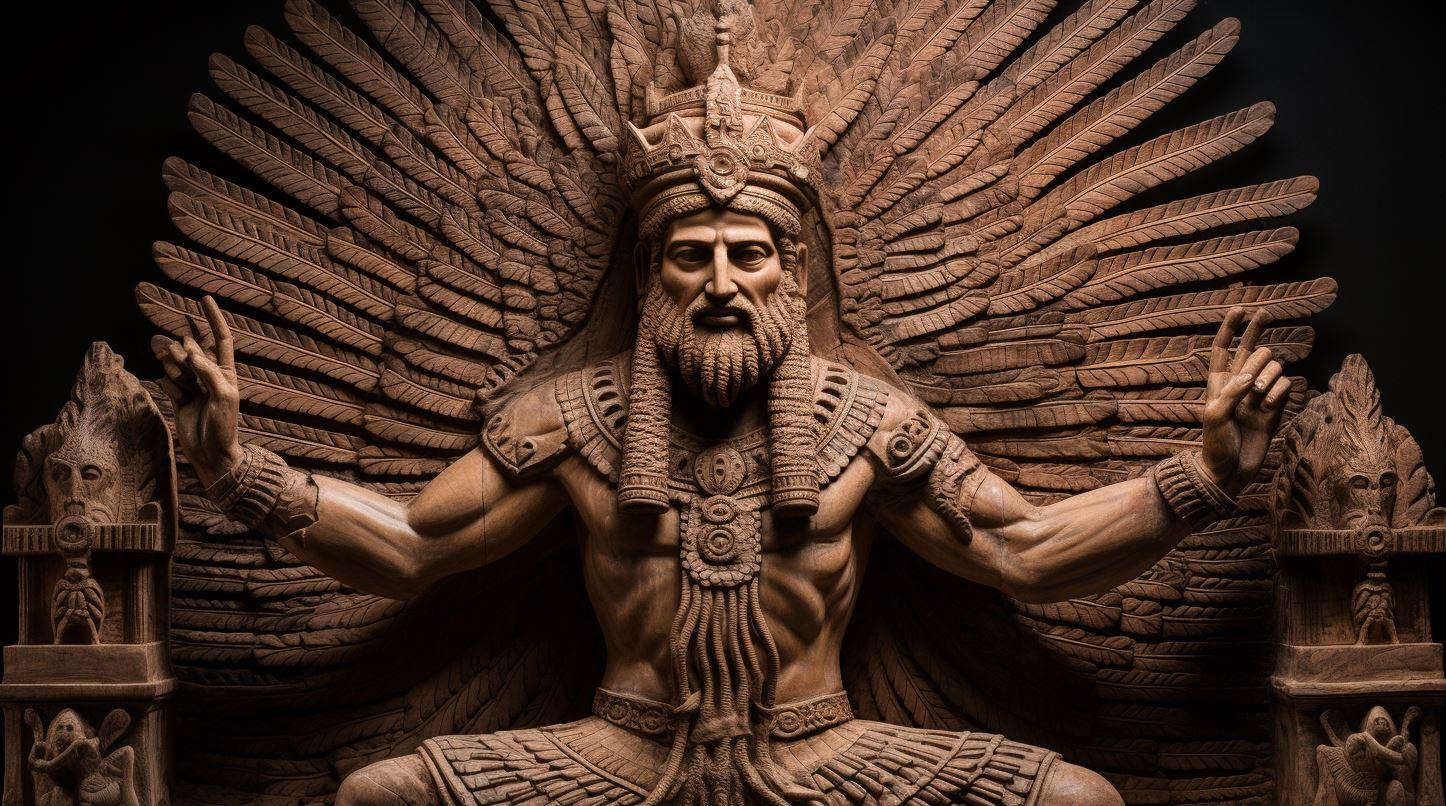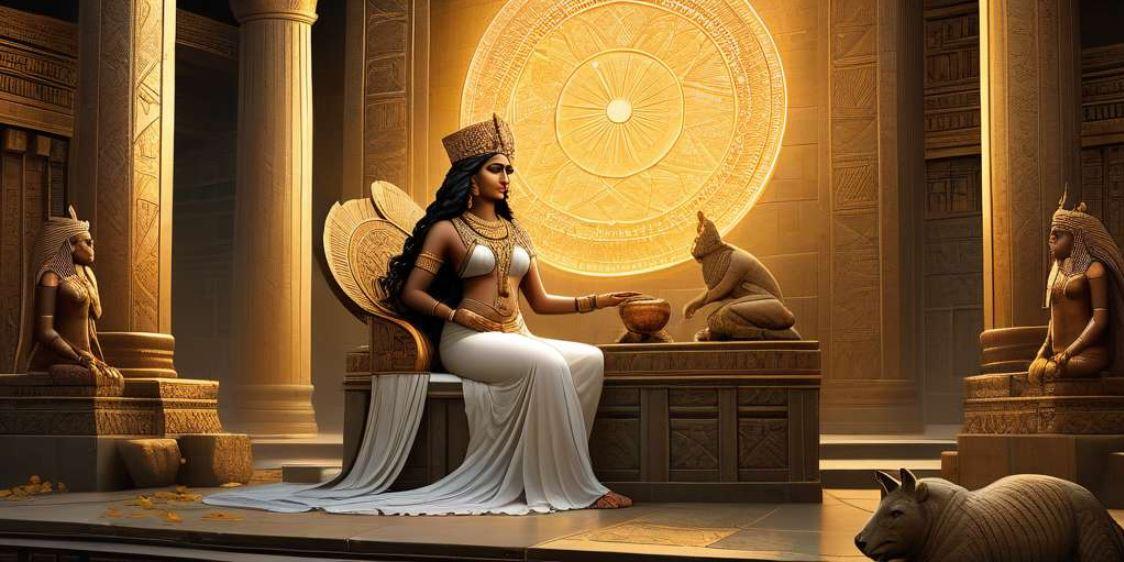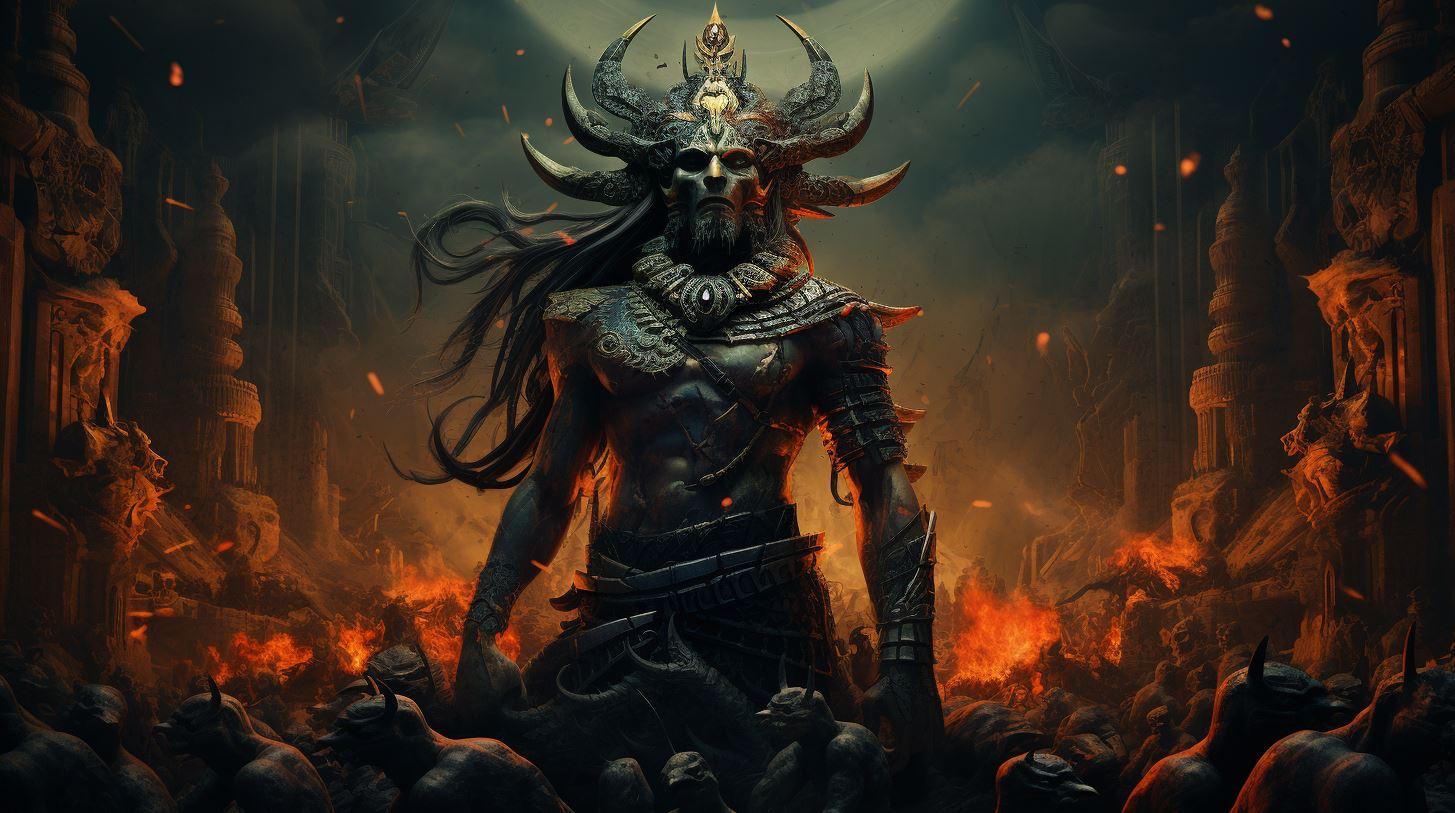Sumerian Gods and Goddesses: Exploring the Divine Pantheon of Ancient Mesopotamia
The Sumerian pantheon, consisting of gods and goddesses, played a significant role in the ancient civilization of Mesopotamia. These deities held various roles and characteristics, shaping the Sumerian cosmology and creation mythology.
One prominent figure is Enki, the god associated with water, wisdom, and magic, who played a crucial part in human creation and agricultural prosperity. Other notable deities include Enlil, the powerful god of wind and storms, and Inanna, the dualistic goddess of love, beauty, and war.
Explore the intriguing world of Sumerian gods and goddesses and their unique powers and relationships in ancient Mesopotamia.
The Sumerian Pantheon: Exploring the Gods and Goddesses of Ancient Mesopotamia
The Origins of Sumerian Deities
The ancient Sumerians held a rich belief in a pantheon of gods and goddesses who played a significant role in their lives.
The origins of these deities can be traced back to the earliest days of Sumerian civilization, with each god and goddess having a unique story and lineage.
These divine beings were the driving force behind the Sumerians’ religious practices, shaping their worldview and influencing various aspects of their culture.
Roles and Attributes of Sumerian Gods and Goddesses
The Sumerian gods and goddesses fulfilled diverse roles, each associated with specific attributes and powers. From the god of water and wisdom to the goddess of love, beauty, and war, the pantheon encompassed a wide range of divine beings.
Some gods played nuanced roles in multiple domains, demonstrating the complexity of the Sumerian religious belief system. Understanding their roles and attributes provides insights into the Sumerians’ values and priorities.
Sumerian Creation Mythology and the Divine Hierarchy
The Sumerian creation myth offers a captivating account of the origins of the universe and humanity. According to their mythology, the gods and goddesses orchestrated the creation of the world, each contributing their unique powers and talents.
It was Enki who, with the help of his half-sister Ninhursag, crafted the first human beings from clay and infused them with the breath of life.
This act solidified his connection with the mortal realm and emphasized his role as a nurturer and protector of humanity.
Additionally, Enki‘s influence extended to agriculture, providing essential knowledge and techniques to cultivate the land. As the god of fertility, he bestowed the secrets of successful farming upon the inhabitants of Mesopotamia, ensuring bountiful harvests and sustainable livelihoods.
This crucial aspect of Enki‘s portfolio further elevated his status as a benevolent deity and a vital force in ancient Sumerian society.
The Influence of Enki in Sumerian Magic and Invocations
Enki‘s wisdom and magical prowess were revered among the Sumerians. He was believed to possess extraordinary powers, making him a respected figure for practitioners of magic and invocation. Enki‘s knowledge of spells, rituals, and incantations was unparalleled, and he served as a patron for those seeking supernatural aid and protection.
The wealth of his wisdom and magical abilities made Enki an indispensable deity in the mystical practices of the time.
Overall, Enki‘s dominance in water and wisdom, his role in human creation and agriculture, and his influence in Sumerian magic and invocations establish him as a central figure in Sumerian mythology.
His importance in various aspects of life showcases the significance of his presence within the pantheon and his enduring impact on ancient Mesopotamian culture and society in 2023.
Enlil, Inanna, and Other Prominent Sumerian Deities
Delve into the fascinating world of Sumerian mythology and explore the intriguing deities that played significant roles in their ancient culture.
Enlil: The Mighty God of Wind and Storms
Enlil, known as the powerful god of wind and storms, held a prominent position in the Sumerian pantheon. Revered for his control over natural elements, Enlil was believed to bring forth destructive storms and control the winds that shaped the world.
As a divine being associated with nature’s forces, he commanded respect and fear from mortals.
Inanna: The Dualistic Goddess of Love, Beauty, and War
Inanna, the captivating and multifaceted goddess of Sumeria, embodied the duality of love, beauty, and war. Revered for her captivating allure, she held great influence over matters of the heart. In addition to her mesmerizing beauty, Inanna possessed a mighty warrior spirit, often engaging in battles and championing victory for her people.
The Unique Powers and Relationships of Other Sumerian Deities
- Ninurta: This god of war and agriculture possessed unmatched strength and protected the Sumerian civilization from external threats. He was also associated with the fertility of the land, ensuring prosperity for the people.
- Utu: As the sun god, Utu brought light and justice to the world.He was revered as a divine judge who would ensure fair outcomes for the Sumerian people.
- Ninhursag: The goddess of fertility and Mother Earth, Ninhursag nurtured life and provided sustenance for all.From her bountiful embrace, she bestowed health and prosperity upon the land.
These were just a few examples of the diverse Sumerian deities with unique powers and relationships. Each god and goddess played a distinct role in shaping and maintaining the Sumerian civilization, influencing various aspects of human existence.
As we explore further into the depths of Sumerian mythology, we unravel a rich tapestry woven by these divine beings, uncovering the intricate connections they held with the human experience

